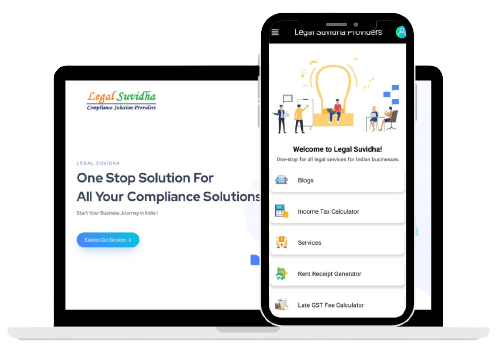ISO 27001: Information Security Management
ISO 27001: Information Security Management – A Simple Guide In today’s digital world, keeping sensitive information safe is more important...
Payroll maintenance is the process of managing and keeping accurate records of employee compensation and benefits, including salaries, wages, bonuses, and deductions. It involves tasks such as calculating payroll taxes, ensuring compliance with labor laws and regulations, and preparing financial statements related to employee compensation. Payroll maintenance is a critical aspect of human resources and accounting, as it impacts both employees and the financial health of an organization. Effective payroll maintenance can help ensure that employees are paid accurately and on time, while also minimizing errors, avoiding legal issues, and maintaining financial transparency.

Happy Clients
Years Experience

Happy Clients
Years Experience
For businesses, a payroll system is a crucial piece of compliance software. A company must have a consistent and regular financial system so that it can pay its employees on time. Employees may start to doubt the company’s ability to pay salaries on time or may experience needless delays. Additionally, it might even have an impact on employee morale at the business.
| Easy Tax Filing and Reports | According to the Income Tax Act, every salaried person is required to pay taxes in accordance with State and Federal regulations based on their wage and exemption threshold. It handles all legal and compliance needs, which helps the business file taxes quickly |
| Economical And Time-Saving | Usually, payroll software is made to work with the current accounting system, allowing businesses to reduce the time and cost of processing big amounts of data. |
| Determine Compensation | The payroll system now includes all forms of compensation for every employee, making it easier for employers to assess each employee’s performance during the evaluation cycle |
| Maintain Reputation | A corporation must guarantee that all of its financial responsibilities are met as well as maintaining compliance with all tax and labour laws, including TDS, ITR, ESI, and PF. This helps to increase the brand proposition and improves an organization’s reputation as a reliable employer |
Pre-Payroll Activities
Step 1: Defining payroll policy: The first step is wherein the policies to the bank during the payroll processes need to be established. These policies need to be approved by the management to turn these policies into standards. Policies like the Pay policy, Attendance policy, leave and benefits policy, and more.
Step 2: Gathering inputs: At this stage, the inputs are gathered from various departments to ensure the accurate calculation of the payroll.
Step 3: Input validation: Once the data has been collected, it is crucial to confirm its accuracy because even the smallest error could completely sabotage the payroll process.Make sure the list only contains active employees and does not contain any information of inactive workers. examining the data to see if it complies with business rules. Make sure the presentation is done correctly.
Step 4: Payroll Calculation: At this step, the payroll system receives the input data that has been verified in preparation for processing actual payroll. After adjusting for appropriate taxes and other deductions, the outcome is the Net pay.
To prevent further errors, it is always preferable to reconcile the figures and check the accuracy after the payroll process is complete.
Post- Payroll Activities
Step 1: Statutory compliance: The payroll administrator must strictly follow all legal requirements. Several statutory deductions, including EPF, TDS, and ESI, are taken during the processing of payroll.The appropriate authorities or government entities are then given these deductions.
Step 2: Payroll accounting: Every organization is required to maintain an accurate book of accounts and the salary that is paid for one of the significant entries in the books of accounts.
Step 3: Payout: After following the aforementioned procedures, salaries can ultimately be paid in cash, checks, or bank transfers. It is preferable to establish employee salary accounts for smooth transfers.
Step 4: Report: The final step is to compile a report, and it’s important to do so accurately so that it includes data like personnel costs by department or region.
1.Attendance Register and/or clock cards
2. Register for normal time and overtime
3.Leave pay, holiday pay and dearness and other allowances
4.Piecework card
5. Job cards are used for the calculation of bonus
6.Records required for deduction such as Provident Fund, State Insurance Scheme and Family Pension Fund
7.Records received from Accounts Department for fines, losses and recovery of damages
8. Register for co-operative society due
9. Register of Loans and Advances
10. Record of voluntary deductions like Voluntary Provident Fund, LIC
11. Employee’s contribution to Group Insurance Scheme
12. Income Tax if applicable
Payroll activities include capturing attendance data for a given month in order to accurately track employee pay and attendance, recording new hire and employee departure information, determining whether any advances or incentives need to be paid, and determining whether any special salary structure adjustments need to be made.
Payroll comes under both the HR and the finance departments.
The accounting department prepares the payment and is subject to permission from the head of the Agency or the representative. The human resource office creates the payroll since they have records of the attendance and overtime that is provided by the employees.
It helps to ensure that employees are paid accurately and on time, payroll management is crucial. Payroll managers can help avoid overpaying or underpaying employees by monitoring employee hours, salaries, and taxes.
#answer
#answer
#answer
#answer
With a commitment to exceeding expectations and a passion for delivering results, choosing us means choosing a partner dedicated to your success.

We provide free of cost consultation and legal advice to our clients.

We are a team of more than 15+ professionals with 11 years of experience.


All our services are online no need you to travel from your place.

There are no hidden & extra charges* other than the quote/invoice we provide.

We aim that all our customers are fully satisfied with our services.

We value your time and we promise all our services are delivered on time.

We provide free of cost consultation and legal advice to our clients.
In this Journey of the past 14+ years, we had gained the trust of many startups, businesses, and professionals in India and stand with a 4.9/5 rating in google reviews.We register business online and save time & paperwork.
Trustindex verifies that the original source of the review is Google. Mayank & the Legal Suvidha team are fantastic. They really try to understand the business like insiders and don't give you templatized solutions. The staff are extremely supportive and go out of their way to help you. I would recommend Mayank to anybody new to the startup ecosystem!Trustindex verifies that the original source of the review is Google. Great experience with smooth process during the startup india registration Excellent coordination and teamwork with effective implementation in very limited timeTrustindex verifies that the original source of the review is Google. Sound expertise, good coordination, efficient and timely execution.Trustindex verifies that the original source of the review is Google. Good service and very helpfulTrustindex verifies that the original source of the review is Google. We had a great experience working with the LegalSuvidha team - we have used them for both our Pvt Ltd and LLP formation and their team has been very proactive, knowledgeable, prompt and helpful. They helped with all DSCs as well and couriered them to us. Very professional and thorough. We also got our Startup India , MSME registrations through them promptly. Overall highly recommended. Special callout to Nidhi, Saloni, Anjalin, Shreya and Priyanka for promptly helping us throughout the process.Trustindex verifies that the original source of the review is Google. I am writing to thank you for the quality of service provided by your company. We sincerely appreciate your efficient, gracious customer service, the level of detail and accountability you have demonstrated and the way you conduct business as a whole. A special Thanks to Ms Saloni for her great help throughout.Verified by TrustindexTrustindex verified badge is the Universal Symbol of Trust. Only the greatest companies can get the verified badge who has a review score above 4.5, based on customer reviews over the past 12 months. Read more


Explore more of our blogs to have better clarity and understanding
of the latest corporate & business updates.
ISO 27001: Information Security Management – A Simple Guide In today’s digital world, keeping sensitive information safe is more important...
Operating an online store comes with numerous benefits—but also regulatory obligations. Securing the right licenses and permits is essential to...
Directors shape a company’s governance and strategic direction. Among board members, Executive Directors and Non‑Executive Directors (NEDs) play distinct yet...
The Articles of Association (AOA) form the backbone of a company’s internal governance, setting out the rules, rights, and responsibilities...
Selecting the optimal legal form is a critical decision when launching your U.S. venture. Both LLCs and Corporations offer liability...
Expanding your U.S.-based business into India unlocks access to a vast consumer market, a skilled workforce, and cost advantages—but also...
Here are some answers to potential questions that may arise as you start your business.
Register your business, obtain necessary licenses, and fulfill tax obligations.
Consider factors like ownership, liability, and tax implications to choose from options like sole proprietorship, partnership, or company registration.
Choose a unique business name, obtain required IDs like Director Identification Number (DIN), and file incorporation documents with the Registrar of Companies (ROC).
Obtain GST registration, trade licenses, and any industry-specific permits required to operate legally.
Maintain accurate financial records, file tax returns on time, and adhere to the tax laws applicable to your business.
Yes, startups in India can benefit from various government schemes offering tax exemptions, funding support, and incubation facilities.
Secure patents, trademarks, or copyrights to safeguard your intellectual assets from infringement or unauthorized use.
Challenges include navigating bureaucratic hurdles, complying with complex regulations, and competing in a crowded marketplace.
Looking For More Information? Contact Us
Sign up to receive email updates on new product announcements, special promotions, sales & more.
Redefining the experience of legal services. Now all Professional Services in a Single Click !


Copyright © 2025 Legal Suvidha Providers LLP. All rights reserved.
